The history of classical music stretches back hundreds of years. During that time, millions of concerts have been given and attended in every country of the world.
Certain performances out of those millions have stood out as being particularly important, influential, or otherwise memorable.
Everyone is going to have a different list. But here’s our best shot at ranking (in reverse order) seven of the most famous classical music concerts of all time.
7. Carnegie Hall Opens (5 May 1891)
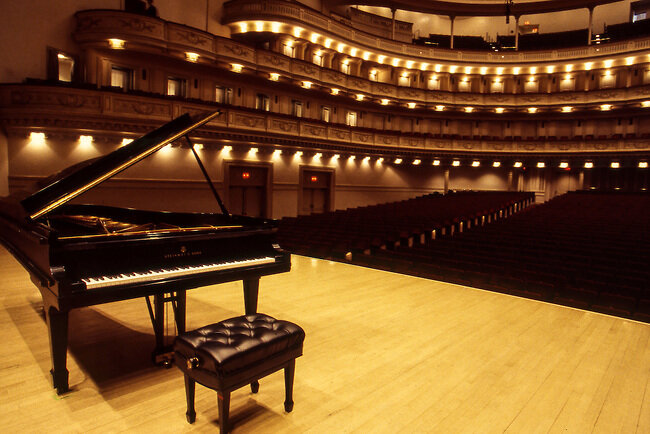
Carnegie Hall, NYC © lenorabrown.com
German conductor Leopold Damrosch emigrated to America in 1871. Over the next two decades, he became a force in the developing musical life of New York City, helping to shape the early history of both the New York Symphony and the Metropolitan Opera. He died in 1885 believing that the city needed a world-class performance venue.
After his death, his son, composer and conductor Walter Damrosch, took up his father’s cause. Damrosch persuaded Andrew Carnegie to contribute two million dollars (the rough equivalent of $70 million today) to build a new concert hall in present-day midtown Manhattan.
Audiences immediately responded. When the main hall opened in the spring of 1891, carriages were lined up for a quarter of a mile outside the hall’s entrance. Tickets were sold for a reasonable $1 (the modern equivalent to $33), while the boxes were auctioned off to members of New York’s elite. Ushers made money by taking bribes to admit standing-room-only audience members.
That first night, Walter Damrosch inaugurated the hall by conducting the New York Symphony Orchestra in Beethoven’s Leonore Overture No. 3 and Berlioz’s Te Deum.
In between, special guest Pyotr Ilyich Tchaikovsky took the podium to lead the orchestra in his Marche Solennelle. Celebratory concerts continued throughout the week, and Tchaikovsky appeared at those, too.
The hall’s debut was a smashing success. Today, it is one of the most famous concert venues in the world. To make a Carnegie Hall debut is one of the great honors of any classical musician’s career. Its legendary reputation and incomparably rich legacy are why its opening made it number seven on our list.
6. Franz Liszt Piano-Duels Sigismund Thalberg (31 March 1837)
In 1837, Franz Liszt and Sigismund Thalberg were both twenty-five-year-old super-virtuosos making their names in Paris.
In March, a countess (and PR-savvy journalist) named Countess Cristina Belgiojoso invited the two rivals to compete in a piano duel. Proceeds raised would go to supporting Italian refugees and draw aristocrats’ attention to the countess’s pet cause of Italian independence.
Liszt and Thalberg agreed to participate. On the appointed night, they performed their flashiest, most virtuosic works for the audience. Apparently, neither clearly outplayed the other, and upon the evening’s conclusion, the countess famously proclaimed, “Thalberg is the greatest pianist, but there is only one Liszt.”
In the end, this was a public relations event meant to draw attention and resources to the cause of Italian independence, so it’s probably not fair to take the countess’s statement about the men’s abilities totally at face value.
However, the idea of two of the greatest pianists of the Romantic Era going head-to-head in competition captured the public imagination, and people still remember this concert today.
In fact, in 2020, pianist Marc-André Hamelin put out an entire album consisting of the kinds of operatic fantasies by Liszt and Thalberg that they would have played at this legendary performance.
5. Marian Anderson Sings at the Lincoln Memorial (9 April 1939)
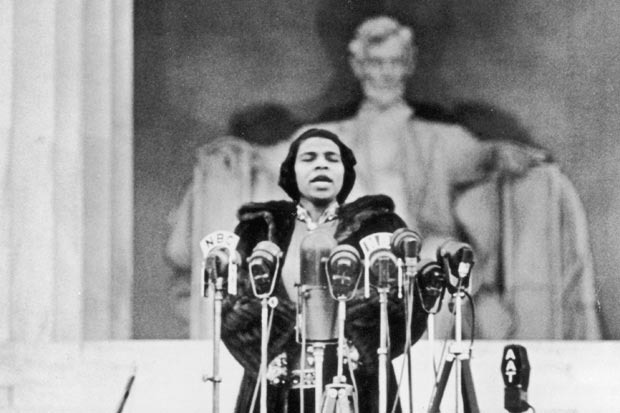
American opera singer Marian Anderson performs on the steps
of the Lincoln Memorial in Washington, DC on April 9, 1939 © Hulton Archive/Getty Images
Contralto Marian Anderson was born in Philadelphia in 1897. She began singing publicly as a child at her family’s church.
As a young woman, she was accepted to study at the Philadelphia Musical Academy, but she was later refused admittance after the school discovered she was a Black woman. She persisted by pursuing her music studies privately.
Anderson enjoyed several career breaks throughout the 1920s and 1930s, winning a competition sponsored by the New York Philharmonic in 1925, debuting at Carnegie Hall in 1928, and embarking on a tour of Europe in the 1930s.
In 1939, she was booked to play a concert at the DAR (Daughters of the American Revolution) Constitution Hall music hall in Washington, D.C. However, the head of the organization denied Anderson permission to sing there, citing a policy that only white people could perform at the venue.
A furor followed this decision. Activists were appalled at the DAR’s actions. First Lady Eleanor Roosevelt actually resigned from the organization because of their treatment of Anderson, and many thousands of women across America followed suit.
Lincoln Memorial Concert | Voice of Freedom | American Experience | PBS
To try to fix the problem, Eleanor Roosevelt, President Roosevelt, and Anderson’s managers consulted with the Secretary of the Interior to allow an open-air performance at the Lincoln Memorial in Washington, D.C. Seventy-five thousand people ended up attending, with millions more listening on the radio.
4. Rite of Spring Shocks the World (29 May 1913)
Many music lovers think they know the story of the premiere of Igor Stravinsky’s groundbreaking ballet The Rite of Spring. It is remembered today as having caused a full-blown riot and is, therefore, one of the most infamous events in classical music history.
However, the real story is more complicated than that.
The daring, fashionable ballet company Ballets Russes mounted their production of The Rite of Spring in the spring of 1913. The Rite of Spring was meant to be an evocation of the barbarity of “prehistoric” pagan Russia, and featured a harsh, aggressive score.
The Rite of Spring – Sacrificial Dance – Nijinsky reconstruction
Different social classes and different social cliques reacted to the ballet’s dance, music, and “primitive” subject matter in different ways, resulting in scattered disturbances (although never a full-blown riot) in the theater’s auditorium.
However, over the decades, the stories snowballed. Two years after the performance, author Carl van Vechten claimed that a fellow audience member pounded fists on his head. By the 1920s, music critics were playing up the conflict at the premiere, and by the 1940s, commentators were using the word “riot” for the first time to describe events.
Given the night’s reputation and the way that entire generations of music lovers still mistakenly believe that a genuine riot occurred, we chose this concert to be number four on our list.
3. Bernstein Celebrates the Fall of the Berlin Wall (Berlin, 23 December 1989 and 25 December 1989)
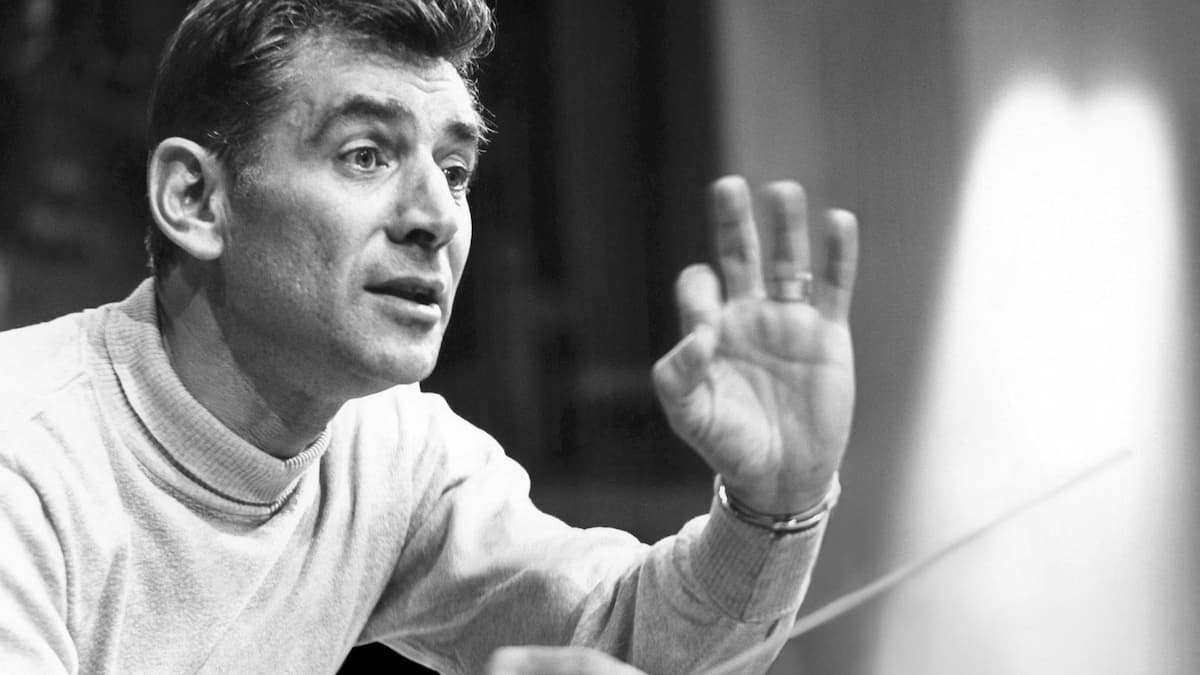
Leonard Bernstein
One of the most famous classical music concerts in the history of television occurred in December 1989.
The performance was spurred by major geopolitical events.
In 1989, the so-called Iron Curtain between Soviet-controlled states and the rest of the world was beginning to rust.
On November 9, news broke that the East German government was changing regulations and allowing travel. These reports weren’t fully accurate, but by the time massive crowds arrived at the Berlin Wall’s gates to celebrate, there was little that officials could do to turn back the tide.
By midnight, citizens were beginning to dismantle the wall, laying the groundwork for a new freedom of movement. Eventually, people came from all around the world to help destroy the wall.
Leonard Bernstein, former conductor of the New York Philharmonic and frequent guest conductor with various European ensembles, wanted to put on a special performance to celebrate the destruction.
He chose to conduct ensembles made up of musicians from all around the world in both West Berlin and East Berlin, performing Beethoven’s ninth symphony.
The Berlin Celebration Concert 1989 – Leonard Bernstein – Beethoven Symphony No 9
Bernstein famously changed the lyrics from “Joy! Joy! … All men shall become brothers” to “Freedom! Freedom! … All men shall become brothers.”
The performance was broadcast on screens not only in Berlin but all across the world, from Japan to the United States and beyond. The concerts became a part of the story of the fall of the Berlin Wall and, ultimately, the collapse of the Iron Curtain.
During an interview, Bernstein remarked, “I’m sure that Beethoven would have given his blessing. This is the happiest Christmas of my life.”
2. Van Cliburn Wins the Tchaikovsky Competition (13 April 1958)
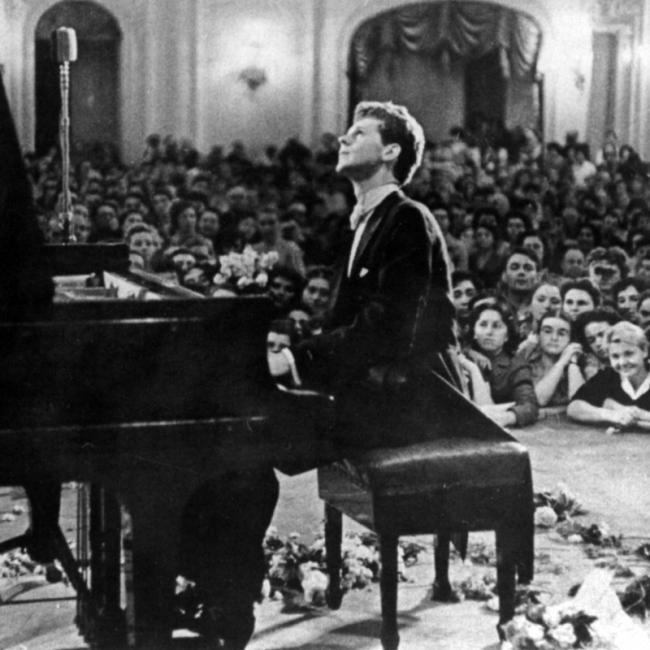
Van Cliburn © Tully Potter Collection
Our second most famous concert also has to do with extra-musical politics.
In 1958, the Soviet government mounted its inaugural International Tchaikovsky Competition. After having demonstrated their technological supremacy (months earlier, the Soviets had won an important stage of the space race by launching the Sputnik satellite), they wanted to prove their cultural supremacy.
Twenty-three-year-old Texan pianist Van Cliburn headed to Moscow to compete. He stunned the crowd and the judges with his performances of Rachmaninoff’s third piano concerto and Tchaikovsky’s first.
Cliburn knew how to be gracious to his hosts. He spoke Russian from the piano and even performed an unannounced encore, his own arrangement of a Soviet song called “Russian Nights.” The audience fell in love with him and his easy virtuosity, and after his performance, began chanting, “First prize! First prize!”
The judges were terrified to name an American the winner of this competition, which, after all, had been envisaged as a chance to showcase Soviet supremacy. They had to consult with Nikita Khrushchev before deciding. He famously said, “Is he the best? Then give him the prize!”
‘Russians Conquered My Heart’: Pianist Van Cliburn Reflects on 50 Years of Music Making
Van Cliburn’s competition win may not have single-handedly saved the planet from nuclear annihilation, but it did briefly dial down tensions and provided an important shared cultural moment for both the Americans and the Soviets…which is more than almost any other classical music concert can say.
1. Too Many Beethoven Premieres (22 December 1808)
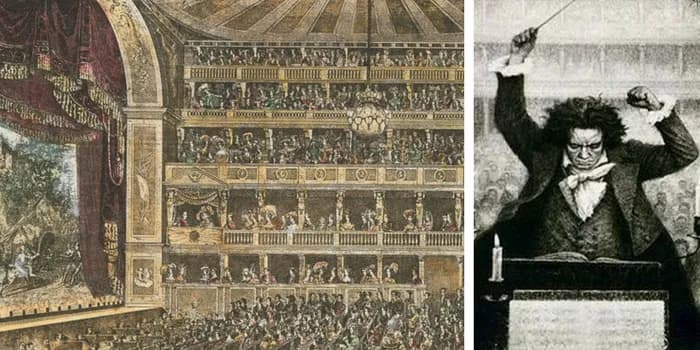
© medium.com
Imagine. It’s a few days before Christmas 1808. You’re in Vienna. You’re at a concert of new music. You came here not knowing what to expect. The concert organizer, a composer named Ludwig van Beethoven, has kept you and your fellow audience members in an unheated theater for hours. Your hands and feet and the tip of your nose have all grown numb. You’re not sure how the orchestra onstage is able to play at all. Between the cold and the unprepared players, they’re performing very badly. You are at one of the most famous concerts in classical music history.
The concert began at 6:30pm and ran for four hours. Although we have a few tantalizing details and personal reminiscences, we don’t know a lot about reactions to individual works because the press didn’t cover them in detail.
Esa-Pekka Salonen on Beethoven’s Famous 1808 Concert in Vienna
These are the works that got played:
- Symphony No. 6 (premiere performance)
- “Ah! perfido”, concert aria for soprano solo and orchestra
(Beethoven quarreled with the fiance of his originally scheduled soprano, and so she dropped out. A terrified teenage singer took her place and didn’t sing very well.) - “Gloria”, from the Mass in C major
- Piano Concerto No. 4 (premiere performance)
- Intermission
- Symphony No. 5 (premiere performance)
- “Sanctus”, from the Mass in C major
- Improvisation for solo piano by Beethoven
- Choral Fantasy for piano soloist, vocal soloists, chorus, and orchestra (premiere performance)
(Beethoven barely finished the Choral Fantasy score in time for the concert. During the rehearsal, the ink was still wet on the musicians’ parts. Not surprisingly, the orchestra fell apart during this piece and had to start over.)
No other concert before or since has included so many works that would become canonical mainstays in one single performance.
Learn more about this nightmare premiere.
It was an easy call: the freezing cold concert of 22 December 1808 is surely the most famous classical music concert of all time.
Do you agree with our picks? Let us know what other concerts should be on this list.
For more of the best in classical music, sign up for our E-Newsletter
